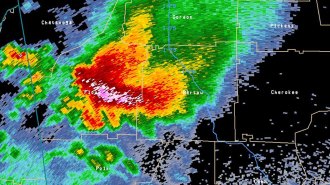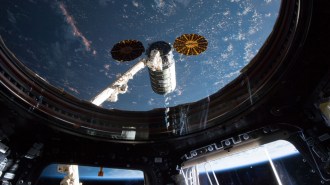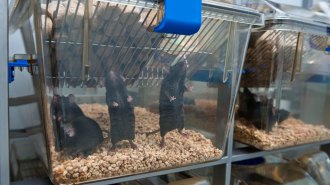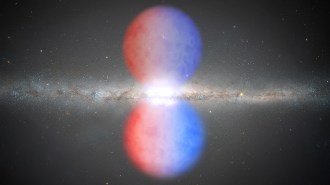Uncategorized
-
 Earth
Earth50 years ago, scientists were getting a better glimpse inside storms
In 1970, experts were harnessing technologies that provided a three-dimensional picture of the inside of a storm.
-
 Quantum Physics
Quantum PhysicsThis weird quantum state of matter was made in orbit for the first time
Bose-Einstein condensates made on the International Space Station could reach temperatures lower than any known in the universe.
-

Science News will observe #ShutDownSTEM on June 10
Our staff will use this time away from the daily news cycle to start working to improve our coverage of race and inequity.
By Nancy Shute -
 Health & Medicine
Health & MedicineNo, you can’t hear the difference between sick and healthy coughs
A study shows humans can’t distinguish between the sound of a cough from someone with an infectious disease and someone with a tickle in the throat.
-
 Health & Medicine
Health & MedicineHow often do asymptomatic people spread the coronavirus? It’s unclear
A WHO official said people without COVID-19 symptoms rarely spread the virus, but there’s a lot that researchers don’t yet understand.
-
 Health & Medicine
Health & MedicineLockdowns may have averted 531 million coronavirus infections
Policies that kept residents at home and closed businesses were largely effective at slowing the pandemic’s spread, two studies suggest.
-
 Animals
AnimalsA nose-horned dragon lizard lost to science for over 100 years has been found
It’s now known that a Modigliani’s lizard, first found in 1891 in Indonesia, is bright green but can shift shades like a chameleon.
-
 Science & Society
Science & SocietyBiomedical studies are including more female subjects (finally)
In 2019, 49 percent of biomedical research articles had both male and female subjects, almost double the percentage a decade ago.
-
 Space
SpaceThe Milky Way’s giant gas bubbles were seen in visible light for the first time
Variation in the light’s wavelengths could help scientists map the velocity of the gas that makes up the towering structures known as Fermi bubbles.
-
 Life
LifeFish poop exposes what eats the destructive crown-of-thorns starfish
During population booms, crown-of-thorns can devastate coral reefs. Identifying predators of the coral polyp slurpers could help protect the reefs.
By Jake Buehler -
 Science & Society
Science & SocietyWhat the 1960s civil rights protests can teach us about fighting racism today
Princeton political scientist Omar Wasow talks about how his research into violent versus nonviolent protests applies to the current moment.
By Sujata Gupta -
 Animals
Animals5 reasons you might be seeing more wildlife during the COVID-19 pandemic
From rats and coyotes in the streets to birds in the trees, people are noticing more animals than ever during the time of the coronavirus.